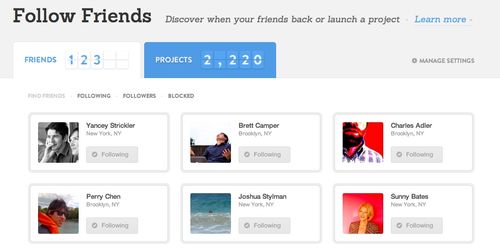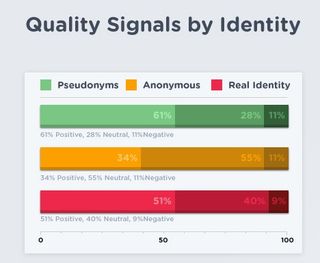On Monday, I trained it up to New Haven to meet a Yale professor named Dina Mayzlin and talk to her class. I thoroughly enjoyed talking to Dina's class as it allowed me to work on some new material in a comfortable setting. But the talk Dina and I had over breakfast before class was even more thought provoking.
Dina got her PhD at MIT's Sloan School a decade ago, before she started teach at Yale. Her thesis looked at TV shows being talked about in the social media of that time, newsgroups, IRC, Usenet, etc, etc.
What she and her colleagues found out was that volume (number of mentions) was not a good predictor of popularity. Volume was more of a trailing indicator than a leading indicator.
But Disperson, or what Dina calls Entropy, turned out to be a very reliable leading indicator of popularlity of a TV show. The wider and broader the discussion of the TV show went within online social media, the more likely the show was to become popular.
By coincidence, the material I am working on in my public talks right now is about the fragmentation of social media. And so as I talked about fragmentation with Dina's Yale class, I started to weave her work, which was still rattling around in my brain, into my fragmentation thesis.
I am totally convinced that the world of social media is not consolidating around one "winner takes all" social platform. Instead, the world of social media is fragmenting into dozens of social platforms that are best of breed for a certain kind of social engagement. If you are building a social media strategy today, you absolutely need to address Facebook, YouTube, Twitter, and Tumblr. And you should also consider Foursquare, Instagram, Pinterest and Path. If you are in the music business, you need to consider SoundCloud. If you are in the book business, you need to consider Wattpad. If you are in the TV business, you need to conside GetGlue. And so on and so forth. Many of the companies I just mentioned, but not all of them sadly, are USV portfolio companies.
That's the thesis I spent thirty minutes on in front of the Yale class. But near the end of the talk to Dina's class, it occured to me that disperson/entropy can be gained by engaging on multiple social platforms. The number of likes on Facebook or tweets on Twitter is volume and is likely to be a trailing indicator of popularity. But if you track the essential social gestures across the fragmenting landscape of social platforms, likes, tweets, tumbls, checkins, pins, etc, then you get a measure of dispersion that may well be a leading indicator of popularity or the slope of the popularity curve.
That's the theory anyway. I'll leave the research to Dina and others. I hope someone will run the numbers to see if it works.













